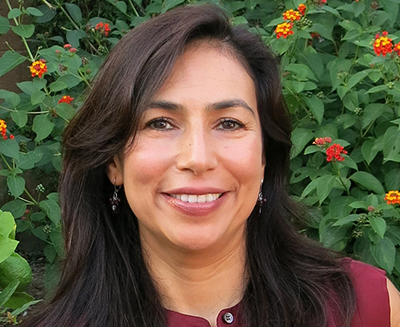Articulating Tenure Expectations in Multidisciplinary Units
Belinda Campos, Professor and Chair, Chicano/Latino Studies; School of Medicine PRIME-LC; Department of Psychological Science

In a multidisciplinary department, it is important that there be clear norms for review because discipline specific training and expectations vary widely. For example, in the department of Chicano-Latino Studies, our faculty are historians, literary journalists, political scientists, psychologists, public health, and sociologists. Our norm for merit and promotion reviews is to ensure that a faculty member's scholarly accomplishments as well as teaching and service loads are evaluated respective to the standards of that faculty member's own discipline and that there should also be clear contribution to Chicano-Latino Studies. To ensure that this is done fairly and rigorously, and this concern is especially salient when a faculty member finds themselves to be the only person of their disciplinary background in our department, the following is normative:
- Faculty colleagues that can speak to disciplinary norms are consulted as review matters come up (e.g., when we only had one psychologist, colleagues in the Department of Psychological Science were consulted);
- Faculty colleagues that can speak to disciplinary norms may be invited to be members of the departmental review committee (e.g., when we only had one psychologist, colleagues in the Department of Psychological Science contributed to the case review and departmental letters alongside Department of Chicano-Latino Studies faculty review committee members);
In promotion cases, letters from department chairs of a faculty member's discipline of training have also been welcomed, especially if they can speak to contributions that might not otherwise be particularly visible to Department of Chicano-Latino Studies colleagues (e.g., mentoring graduate students in one's discipline of training or other interdisciplinary units).
These norms are fostered by practices that encourage faculty conversations about these norms when any one of us is being reviewed and that encourage Department of Chicano-Latino Studies faculty to maintain connections to the departments of their disciplines of training as this facilitates the process of engaging with faculty colleagues in other departments to ensure that disciplinary norms are understood (e.g., publications versus book, # of publications typical, the demands of running a laboratory, doing field work, etc.).



